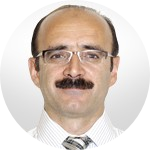About This Project
We are studying the challenges small practices in rural areas encounter with using Electronic Health Records meaningfully. We plan to conduct in-depth interviews with physicians and clinic managers who are employed in small practices in rural areas in South Carolina. Our overall goal is to identify their challenges and ways to promote collaboration between these practices with the goal to increase effective utilization of Information Technology.
Ask the Scientists
Join The DiscussionWhat is the context of this research?
The Health Information Technology Economic and Clinical Health Act (HITECH) was enacted in 2009 to promote the use of health information technology meaningfully. A health care provider is said to use Electronic Health Record (EHR) meaningfully when the EHR is certified and used for clinical documentation, prescribing, exchange of health information and for submitting clinical quality measures. The goal is to enhance data capture and information sharing between providers, improve efficiency in the clinical process and ultimately lead to improved patient outcomes at reduced costs.
Small private practices in rural areas encounter significant challenges in meeting the HITECH meaningful use requirement because they cannot afford sophisticated EHRs which enhance meaningful use of EHRs
What is the significance of this project?
To increase uptake of routine use of EHR, the Center for Medicare and Medicaid Services (CMS) created an incentive program for eligible providers and hospitals to use EHRs meaningfully. While the adoption of Electronic Medical Records (EMRs) post the HITECH act has surged, there are still many providers' who are not meeting the requirements for meaningful use, particularly small private practices in rural areas.
What are the goals of the project?
Our goal is to determine the most common barriers small private practices in South Carolina encounter in meeting the HITECH meaningful requirements and find out ways these practices can collaborate to overcome these challenges.
Budget
The proposed budget provides our team with funding for transportation to visit sites and transcription of audio files, and incentives for clinic managers.
Travel to clinic sites for data collection: Funds are requested to pay for travel expenses of team members to the clinic sites in South Carolina to collect data. Study sites will be located in a 30 mile radius. The total mileage is estimated at 577 miles. Total travel cost is (577 miles x $.52) = $300
Recognition of Participant Time and Effort (Compensation): Each participant will be compensated with a $50 Walmart gift card following the completion of the in-depth interview. Total cost for participant compensation is $1,000.
Transcription of interviews: The recordings from our in-depth interviews will be transcribed verbatim and each 60 minute interview costs about $100 to be transcribed professionally.
Mail: We will identify small practices and send letters introducing our project. We will send out letters to 40 practices and the cost to mail each letter is estimated at $1.
Endorsed by
Meet the Team
Affiliates
Team Bio
Primary team members Gloria, Omonefe, Serdar, and Shaun are affiliated with the University of South Carolina Arnold School of Public Health. Our dynamic team is committed to the use of Health IT in improving Health outcomes.
At the end of this project we hope to identify the challenges small, private practices encounter in implementing Health IT in routine clinical practices and find ways to for small rural practices can collaborate to meet their Health IT goals.
Gloria Esoimeme
I am an MD and a 3rd year Health Services Policy and Management PhD candidate at the University of South Carolina. My interests include Health IT, shared decision making, patient engagement, health disparities and cancer research.
There is a gap in the integration of information technology to clinical medicine. So, I support physicians and medical institutions in the implementation of various EMR software, and also assist in the development of data-driven solutions to improve patient health.
Omonefe Omofuma
I am a doctoral candidate in the department of Epidemiology & Biostatistics at the University of South Carolina.
I am passionate about research on health disparities, assessment of dietary and pharmacological risk factors of cancer and patient centered outcomes
Shaun Owens
I use community-based research methods to develop sustainable, technology-based interventions, products, and services for aging adults. My work focuses primarily on the development and evaluation of embodied conversational agents (i.e., avatars) for promoting informed health and cancer decision making among African Americans. I hold a Master of Public Health from Emory’s Rollins School of Public Health and a PhD in Health Promotion Education and Behavior from the University of South Carolina’s Arnold School of Public Health.
Serdar Aydin
I'm a third year Ph.D. candidate at University of South Carolina. I specifically focus on quality of care, health administration, comparison of healthcare systems, and health IT.
As a team, we would like to contribute to our area by collaborating together on this project. I also believe we are going to do our best.
Lab Notes
Nothing posted yet.
Project Backers
- 29Backers
- 106%Funded
- $3,549Total Donations
- $67.11Average Donation




